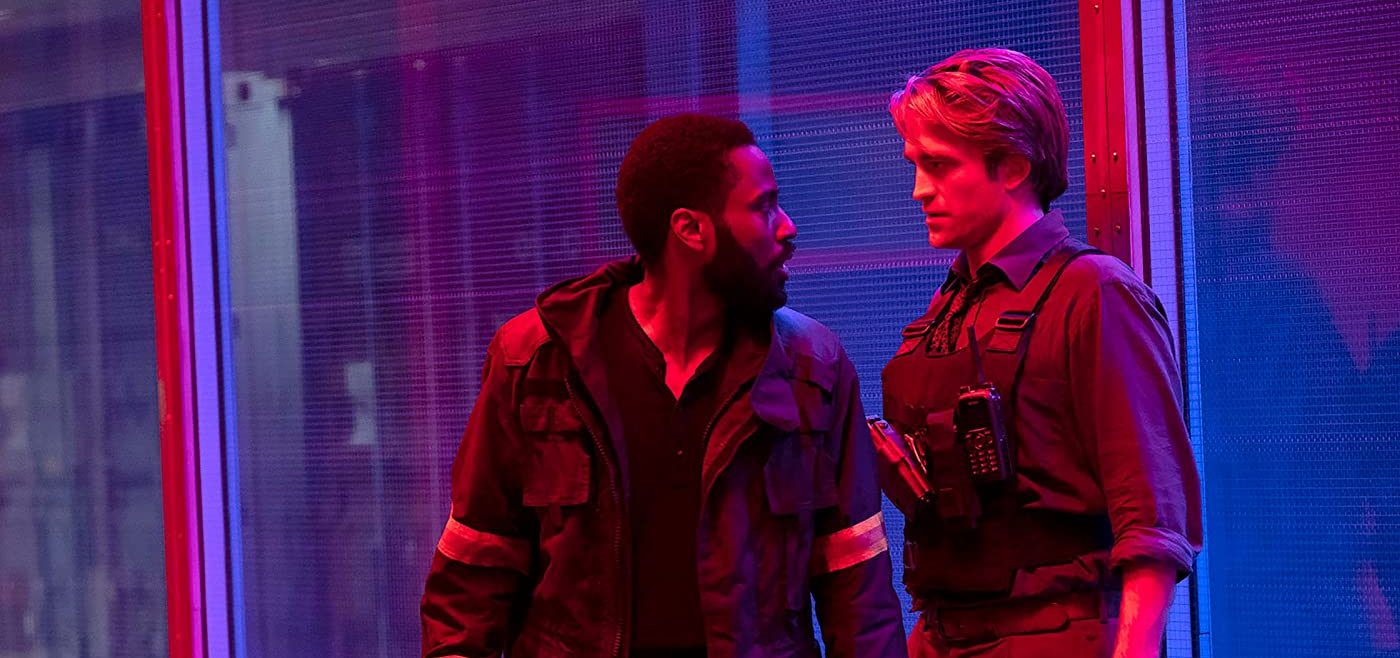Christopher Nolan makes films that are meant to be experienced in cinemas, at least for the first time, and Tenet is no exception. As my local theatre opened back up, seeing this film first just made sense. The trailers for this film looked incredible and presented itself as an original spy adventure. Beyond that and teasing the concept of inversion, the plot was virtually unknown. Love him or hate him, Nolan certainly knows how to intrigue an audience.
The film follows The Protagonist, a CIA agent. He goes undercover with Russian operatives to secure an object with a small team. After the item is recovered, the Russians realize that they have been duped, and torture him to reveal what he knows. He persists and manages to chew on a suicide pill. Except that it wasn't a suicide pill. He wakes up after a coma and finds out that the Russians found and killed his entire team, and had taken the mysterious object for themselves. From there, he is given only a word, "tenet", and a mission that will have a significant impact on the entire world.
He then learns the science behind inversion, and the capabilities, sending people and objects back in time. As the title Tenet is a palindrome, a word that is spelled the same way frontwards and backward, I thought that was quite clever. Materials from the future keep showing up in the present, hinting at an upcoming war, and The Protagonist is recruited to help prevent it due to his skill set. How inversion is presented to us is interesting. From the perspective of the characters and the audience, it is things moving backward. From cars on the highway to bullets reentering the gun before it is fired, effectively catching it. There is even a sequence where characters speak backward, and behind the scenes, this wasn't even a digital trick. The actors learned to speak and perform some action sequences backward.
Like Nolan's previous films, especially Inception or Interstellar, this is a film that requires your full attention. The concept of Inversion has a lot of rules that unfold throughout the narrative, and you do not dare take your eyes off the screen, or you will be lost. There are little moments throughout the film that get a callback that would make an audience member go "Wait. Didn't I see this before...Woah". It's all in the details. Anyway, with the mission clear, The Protagonist goes fo retrieve the several items that are required to prevent Armageddon.
The exposition does get a little heavy, especially in the middle act, and little things will be lost during a first time viewing, but it doesn't drag, and as written in the previous paragraph, the payoff makes it worth it in the final act. As big as the film is, the narrative is mostly focused. The concept that it presents us with, it has to be. Nolan has a lot of characters in this film but keeps the focus on The Protagonist.
There is an honest trailer from ScreenJunkies looking back at Nolan's first eight films. One constant is that the wife or girlfriend character is secretly evil. Two main female characters avoid that. One is Priya, the wife of an arms dealer who is presented from her introduction as morally grey. The other is Kat, the wife of Andrei Sator, a Russian oligarch who can somehow communicate with the future. Both are full characters that add creative value to the film. With Kat, in particular, we have an inside look at a dysfunctional loveless marriage that Nolan usually avoids. The closest we have gotten to this from Nolan is the relationship between Dom and his imaginary dead wife in Inception.
John David Washington serves as a charismatic leading man. The amount of swagger that he presents on screen, it is almost enough to make you forget that we are spending 2 and a half hours with him, and we never learn his name. While the film isn't humorous, as some critics may criticize the film for, though that was never Nolan's style, to begin with, The Protagonist does break the tension here and there with a comment that makes him feel like a real person, helping the audience root for him. That was important, as not being given a name could have made this some impersonal. Robert Pattinson's Neil serves as the heart of the film. The relationship and chemistry between his and Washington's characters were the most engrossing for me to watch, besides the massive action sequences of course.
The action set pieces are as thrilling as expected. With Nolan's insistence on practical effects, there is an epic nature to it. The highlight for me was the airport sequence, as teased in the trailers that involve crashing a massive plane.
Nolan's usual collaborator, Hanz Zimmer wasn't available to compose the score for this film, instead choosing to work on the upcoming Dune, which he described as a passion project. Instead, rising star Ludwig Goransson(The Mandolorian, Black Panther) composed the score and co-wrote the original song sung by Travis Scott played during the end credits. Yes, Christoper Nolan has a hip hop song played in his film. Honestly, it works. Nevertheless, Ludwig does great work here, and the way the music is used as if it was a natural extension. it is integral to the story. The use of breathing sounds will make sense with context, but nevertheless, it is highly effective.
I felt that the editing was a bit off during the first act. As long as this film is (150 minutes), there were some moments that I felt that the filmmakers were rushing. Other moments, the music was a bit loud that I had trouble hearing the actors.
Tenet is a thrilling epic spy adventure created with technical precision and elevated with brilliant performances and top tier directing.
8.5/10


No comments:
Post a Comment